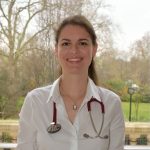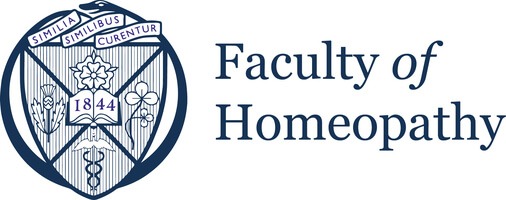Green tea, a timeless treasure from ancient Asia, has been consumed and revered for its health-promoting properties for thousands of years. As a versatile beverage that can be enjoyed hot or cold, it has played a significant role in the daily lives of people across Asia. Today, modern research is increasingly confirming the wisdom of the ancients, as the benefits of green tea continue to be discovered and integrated into modern medicine.
If you're looking for a complementary approach to boost your overall health and wellness in London, consider trying IV drip therapy. Our clinic in the city offers customized IV drips that deliver essential vitamins, minerals, and other nutrients directly into your bloodstream for maximum absorption. These treatments can help support the health benefits gained from a balanced diet rich in nutrient-dense foods like green tea. Whether you're seeking improved immunity, enhanced energy levels, or better stress management, IV drips can be a valuable addition to your health routine.
The Production and Unique Varieties of Green Tea
From Plant to Cup: The Origins of Green Tea
All true teas, including green tea, originate from the Camellia sinensis plant. This versatile plant comes in two main varieties: Camellia sinensis var. sinensis, native to China, and Camellia sinensis var. assamica, indigenous to India. Green tea is distinct from other types of tea, such as black and oolong, due to its unique processing methods, which allow it to retain a fresh, vibrant taste and color.
Unlocking the Flavor: Green Tea Processing Techniques
The secret to green tea's unique characteristics lies in its production. After the tea leaves are harvested, they undergo a crucial process to prevent oxidation, which helps to preserve the green color, delicate flavors, and potent health benefits. There are two main methods for preventing oxidation: steaming, as is common in Japan, and pan-firing, which is the traditional Chinese technique. These methods inactivate the enzymes responsible for oxidation, maintaining the tea's freshness and nutritional value.
A World of Green: Major Types of Green Tea and Their Unique Characteristics
Across Asia, there are countless varieties of green tea, each with its own distinctive taste, appearance, and aroma. Some of the most famous green teas include:
As we continue to uncover the knowledge and secrets of ancient Asia, it becomes clear that green tea holds a special place in both its history and culture. By understanding the nuances in production and variety, we can better appreciate the true depth of green tea's allure and its potential health benefits.
Traditional Uses of Green Tea in Ancient Asia: A Testament to Its Timeless Value
Medicinal Marvel: Green Tea in Traditional Chinese and Japanese Medicine
Green tea has been an essential component of traditional Chinese and Japanese medicine for centuries. Ancient practitioners recognized its therapeutic potential and prescribed it for various ailments. Green tea was believed to have properties that could aid in digestion, enhance mental alertness, and promote longevity. Its use extended beyond mere consumption, as the tea leaves were often applied topically to treat skin conditions and soothe inflammation.
A Cultural Staple: Green Tea in Tea Ceremonies and Social Gatherings
Green tea has also been deeply intertwined with the social and cultural fabric of Asia, particularly in China and Japan. Tea ceremonies, such as the Japanese "Chanoyu" and the Chinese "Gongfu Cha," have been essential aspects of their respective cultures. These ceremonies emphasize mindfulness, respect, and harmony, turning the simple act of drinking tea into a profound and meaningful ritual. The ceremonies also showcase the art of tea brewing and the aesthetics of tea ware, highlighting the cultural significance of green tea.
Spiritual Connections: Green Tea and Eastern Philosophy
The history of green tea is closely linked to Eastern philosophy and spirituality, especially Buddhism. Monks often drank green tea to promote mental clarity and focus during meditation, as well as to maintain overall well-being. Temples and monasteries became centers for tea cultivation, and the spread of Buddhism contributed to the dissemination of green tea throughout Asia. The relationship between green tea and spiritual practice is still evident today, with many people enjoying a cup of tea as a means to find calmness and clarity in their daily lives.
Health Benefits of Green Tea: Ancient Wisdom Meets Modern Science
A Treasure Trove of Antioxidants: The Role of Catechins
One of the primary reasons green tea has garnered so much attention is its rich content of antioxidants, specifically a group of compounds called catechins. The most abundant and well-studied catechin in green tea is epigallocatechin-3-gallate (EGCG). These powerful antioxidants neutralize free radicals, which are unstable molecules that can cause cellular damage and contribute to chronic diseases. By scavenging free radicals, catechins help to protect the body from oxidative stress, supporting overall health and well-being.
Soothing the Fire Within: Anti-Inflammatory and Immune-Boosting Effects
Green tea has also been shown to possess anti-inflammatory properties, which can be beneficial in managing a variety of chronic conditions, such as arthritis, inflammatory bowel disease, and even certain skin disorders. Additionally, green tea's catechins have been found to exhibit antimicrobial properties, helping to boost the immune system and protect against common infections.
A Heart-Healthy Brew: Cardiovascular Health Benefits
Numerous studies have demonstrated that green tea may positively impact cardiovascular health. It has been associated with reduced blood pressure, lower LDL (bad) cholesterol levels, and decreased risk of heart disease and stroke. The antioxidants in green tea, particularly EGCG, are believed to help prevent the oxidation of LDL cholesterol, which can contribute to plaque buildup in arteries. This makes green tea an excellent addition to a heart-healthy diet and lifestyle.
Harnessing the Power of Prevention: Potential Cancer-Preventive Properties
Emerging research has suggested that green tea may have potential cancer-preventive properties. The catechins found in green tea have been shown to inhibit the growth of cancer cells in laboratory studies and to reduce the risk of developing certain types of cancer in some population studies. While more research is needed to establish a definitive link, green tea's antioxidant and anti-inflammatory properties make it a promising candidate for cancer prevention.
Brain Boost: Cognitive Function Enhancement and Neuroprotection
Green tea has long been associated with mental alertness due to its caffeine content, but recent studies have shown that its benefits extend beyond mere stimulation. The combination of caffeine and L-theanine, an amino acid found in green tea, has been found to enhance cognitive function, improving focus, memory, and reaction time. Furthermore, green tea's antioxidant properties may help protect the brain from age-related decline and neurodegenerative diseases such as Alzheimer's and Parkinson's.
The Weight Loss Ally: Weight Management and Metabolism Improvement
Green tea has gained popularity as a natural weight loss aid, as it has been shown to increase metabolism and fat oxidation. The combination of caffeine and catechins, particularly EGCG, is believed to enhance the body's ability to burn fat for energy, which can lead to weight loss and improved body composition. Including green tea as a part of a balanced diet and regular exercise routine can support healthy weight management.
Green Tea in Modern Integrative Medicine: Bridging the Gap Between Tradition and Science
Evidence-Based Support for Traditional Uses
As more research is conducted on green tea, we continue to find evidence supporting its traditional uses in ancient Asia. The myriad health benefits attributed to this remarkable beverage are being validated by modern scientific studies, reinforcing the wisdom of our ancestors. This growing body of evidence encourages the incorporation of green tea into integrative medicine practices, where traditional knowledge and modern scientific understanding come together for a holistic approach to healthcare.
Incorporating Green Tea into Daily Routines and Treatments
Integrating green tea into one's daily routine can be a simple and enjoyable way to experience its numerous health benefits. Whether consumed as a hot or cold beverage, used in cooking, or even applied topically in skincare products, green tea offers a versatile and natural means of promoting overall wellness. However, it is important to consult with a healthcare professional before making significant changes to one's diet or supplement regimen, especially for those with pre-existing medical conditions or taking medications.
Precautions and Potential Side Effects
While green tea is generally considered safe for most people, there are some potential side effects and precautions to consider. The caffeine content in green tea can cause sleep disturbances, jitteriness, or increased heart rate in sensitive individuals. Pregnant or breastfeeding women, people with heart conditions, and those prone to anxiety or insomnia should consult their healthcare provider before consuming large amounts of green tea.
Interactions with Medications and Medical Conditions
Green tea may interact with certain medications or exacerbate some medical conditions. For example, it can interfere with the absorption of iron, potentially worsening anemia. Green tea may also interact with blood thinners, antihypertensive medications, and certain chemotherapy drugs. It is crucial to discuss any potential interactions with a healthcare professional before incorporating green tea into a treatment plan or supplement regimen.
Future Directions for Green Tea Research
Areas of Potential Exploration and Emerging Research
The health benefits of green tea continue to be a subject of ongoing research, with new findings and potential applications constantly emerging. Future research may explore the impact of green tea on gut health, mental health, and other chronic conditions, as well as its potential role in personalized medicine and healthcare.
Challenges in Standardizing and Measuring Green Tea Efficacy
One of the challenges in green tea research is standardizing the product used in studies, as various factors can influence the concentration and bioavailability of its active compounds, such as catechins. Additionally, the dosage and duration of green tea consumption necessary to achieve optimal health benefits are still being determined. Future research will need to address these challenges to provide clearer guidelines for green tea consumption and use in integrative medicine.
Integrating Green Tea into Personalized Medicine and Healthcare
As our understanding of green tea's health benefits grows, it may become an essential component of personalized medicine, where individual genetic, environmental, and lifestyle factors are considered when developing treatment plans. By incorporating green tea and other traditional remedies into modern healthcare, we can move towards a more holistic and patient-centered approach to medicine.
Conclusion: The Time-Honored Gift of Green Tea
The long-standing history and cultural significance of green tea in ancient Asia have proven to be a testament to its remarkable health benefits. As modern research continues to validate and expand upon traditional knowledge, we can appreciate the true potential of this age-old elixir. By integrating green tea into our daily lives and healthcare practices, we can embrace the wisdom of ancient Asia and work towards a healthier, more balanced future.
References:

Consultant in General Internal Medicine (GMC reg. number: 7541548) and Specialist in Complementary Cancer Care
MBBS, MRCIM (Spain), MSc Homeopathy, MFHom, Master practitioner in Ericksonian Hypnotherapy and Neurolinguistic Programming, MSc in Nutrition
Integrated medicine Doctor and Holistic Medicine Practitioner



